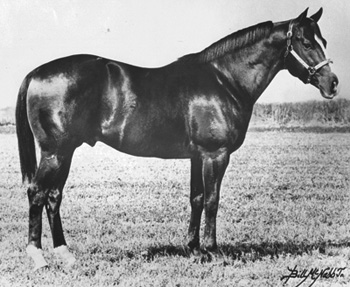 Long overshadowed by his son Dash For Cash, Rocket Wrangler will receive his due, when he is inducted into the AQHA Hall of Fame on March 7, at the association’s annual convention in Kissimmee, FL.
Long overshadowed by his son Dash For Cash, Rocket Wrangler will receive his due, when he is inducted into the AQHA Hall of Fame on March 7, at the association’s annual convention in Kissimmee, FL.
In 1970, when the distance for the All American Futurity was 400 yards, Rocket Wrangler won the then world’s richest horse race to become the first horse in history to conquer both the All American and Rainbow Futurities. He would also become the highest money earner of 1970 and the champion 2-year-old colt.
“Rocket Wrangler was a horse that had a great mind,” said C.W. “Bubba” Cascio, who trained both Rocket Wrangler and Dash For Cash, as well as Rocket Wrangler’s record-setting dam, Go Galla Go. It was Cascio who advised Thayer Hobson to breed Go Galla Go to former Thoroughbred sprinter Rocket Bar.
“Go Galla Go had a lot of run on her mind and she was a great little mare at 350 yards,” Cascio recently told me. “The reason I bred her to Rocket Bar was that the magic word for Quarter Horses has always been futurities and all of his colts would run just as fast the second time (in the finals) as they had the first (in the trials).”
Despite the fact that he was a May baby and small as a yearling, Cascio liked Rocket Wrangler and had little trouble convincing J.R. Adams to buy him.
“I knew if he bought him that I’d get to keep him,” said Cascio, who told Adams about a small bone chip that Dr. Charles Graham had discovered in an x-ray of the colt’s hock. “I’d priced him at $7,500 and (Adams) said that at that price and out of that mare, he’d take him if he only had two legs.
Supplemented to the Kansas Futurity, the first leg of the Ruidoso Triple Crown, Rocket Wrangler qualified with the fastest time, but finished sixth in the finals. After the Kansas Futurity, Cascio blistered the colt’s shins to alleviate soreness that had plagued him during spring training, and Rocket Wrangler came back to win his trial for the Rainbow Futurity by three lengths and qualify with the fastest time.
Although the bone chip that Dr. Graham had discovered never bothered him, Rocket Wrangler’s shins continued to cause him pain, and Cascio blistered him again, after the Rainbow Futurity.
“I’d over-blistered him and he was standing in the barn with no hair on his shins, just two big scabs,” Cascio remembered. “About that time Bob Gentry came by and asked me who I thought was going to win the All American. When I said, ‘This colt right here,’ he got to laughing. But I told him that if I got the horse well enough to train on, they wouldn’t outrun him going that distance.”
Cascio was right. They didn’t outrun Rocket Wrangler. He won his trial and came back to win the All American Futurity by a neck over the fastest qualifier, Bunny Bid, who had run second to him in the Rainbow Futurity.
Rocket Wrangler closed his 2-year-old career as the highest money earner of 1970, with $239,891, and as the fifth leading money earner of all time. His record of 13 starts included seven wins, three second-place finishes and two thirds.
Following the All American Futurity, J.R. Adams sold half-interest in his colt to B.F. Phillips Jr, and Rocket Wrangler launched his stud career at Phillips Ranch, Frisco, Texas, for a fee of $1,500. As a comparison, Go Man Go, the all-time leading sire of money earners and sire of Rocket Wrangler’s dam, Go Galla Go, stood at that time for a fee of $5,000.
Dash For Cash, bred by Phillips Ranch and foaled in 1973, was from Rocket Wrangler’s second crop. Although he would ultimately sire more performers (1,233 to 1,160) than Dash For Cash and is ranked eighth on the list of all-time leading sires by winners, Rocket Wrangler produced only half as many stakes runners as his famous son.
“I think he was moved around too much to really make a good sire,” said Cascio, who noted that Adams bought out Phillips’ share of Rocket Wrangler following the 1972 breeding season and returned the horse to racing. Rocket Wrangler won the New Mexico State Fair Handicap, but was defeated by Mr Jet Moore in the inaugural running of the Champion of Champions, after which time he was permanently retired from the track.
While Cascio doesn’t dispute Dash For Cash’s supremacy, he does give a nod to Rocket Wrangler’s intelligence and willing nature.
“Rocket Wrangler had a great brain and he didn’t have a bad bone in his body,” said Cascio. “I think that was a great asset for Dash For Cash – he passed along his brilliant mind. Anybody could get along with his colts. They were cool-headed horses and that’s why so many of them ran.
“If you train a horse that knuckles down to do his best to please you, it makes a big difference.”
Rocket Wrangler was euthanized November 28, 1992, after suffering from colic, and was buried at Royal Vista Equine in Fort Collins, Colorado, where he had stood the previous season. He ranks 30th on the list of all-time leading sires by earnings and eighth on the list of all-time leading sires by winners. He is 14th on the list of all-time leading broodmare sires by earnings and fifth on the list of all-time leading broodmare sires by winners. His offspring, including Rocket’s Magic, Rambling Sallye, Quick Wrangler, War Star Wrangler and American Speed, earned $9,407,809, with Dash For Cash accounting for $507,689 of the total.
Rocket Wrangler was ridden throughout his career by Jerry Nicodemus.
